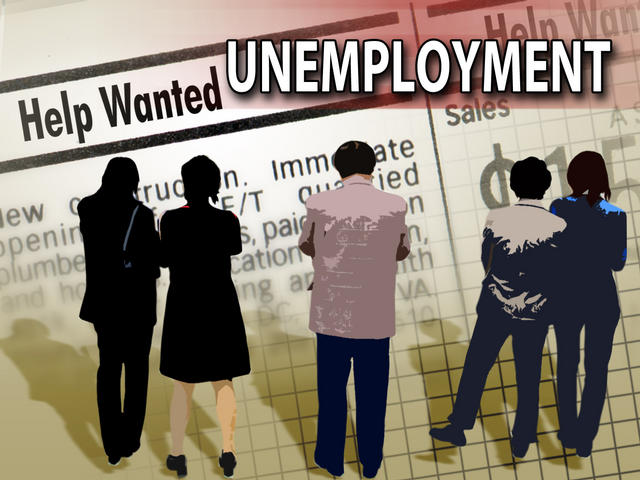 The U.S. House of Representatives found itself doing something it didn’t think possible just weeks ago: it passed a budget.
The U.S. House of Representatives found itself doing something it didn’t think possible just weeks ago: it passed a budget.Like that, Washington was awash in self-accolades. It wasn’t the best budget deal, with longtime observers expressing a bit of shock that members of Congress were actually finding a middle ground on something, but it was able to (at least for now) avoid the shutdown drama of two months ago. Businesses welcomed the deal as refreshing and sorely needed while the economy is still stuck in recovery mode.
“Approval of this agreement represents a return to more regular order for budget and appropriations issues,” said U.S. Chamber of Commerce Executive Vice President for Government Affairs Bruce Josten. “Just as important, it allows the Congress to turn its attention to other pressing matters of national interest, such as immigration reform and trade policy.”
House and Senate negotiators somehow chiseled out a deal that not only replaced sequestration with targeted cuts, but also increased discretionary spending by a little less than .20 percent for a $1.014 trillion in fiscal year 2015.
And while the deal didn’t quite measure up to everyone’s expectations — with advocates on both sides of the aisle balking at a number of missed opportunities and what they saw as caving — it appeared it was something Congress could live with. By week’s end, the House had passed the new budget deal 332-94, with many taking note of House Speaker John Boehner’s willingness to let it happen while keeping his caucus from fracturing into the abyss as it did in October.
But with Boehner able to muster up enough House Republican votes to pass the deal, nearly three dozen Democrats found an opening to express their extreme displeasure over the absence of an unemployment benefits extension in the deal. Congress was able to give federal employees a long-desired 1 percent pay raise in the deal, but there was little political stomach for ensuring long term unemployment benefits didn’t expire on Dec. 28.
Even House Minority Whip Steny Hoyer bucked Minority Leader Nancy Pelosi, giving an impassioned statement on the House floor as she was busily pulling together the caucus to go along and get along.
“It is unconscionable that the budget deal before us does not extend unemployment benefits,” bellowed Hoyer.
“Thankfully, we were able to beat back the worst proposals to further encroach on their benefits, and I believe this bipartisan deal will minimize the prospect of additional furloughs,” said Rep. George Connolly, among the 198 Democrats who voted for the deal.
Still, Connolly found himself in a conundrum, describing the deal as a “hold your nose and vote yes” vote.
The fact that more than 1.3 million Americans could find themselves without a financial lifeline at the end of December was bothering quite a few, with others scrambling to figure out a next step to keep that from happening. Long term unemployment is still high, despite the celebratory reaction of administration officials who were highlighting recent jobless numbers from the Bureau of Labor Statistics showing unemployment at its lowest in five years.
That still doesn’t negate the fact that Congress has never gone through with such an unusual, and what many advocates call a callous, step. For the past few years, Congress had been on the cusp of cutting long term unemployment extensions before, but somehow Democrats in the White House and on Capitol Hill stood firm.
This time, Pelosi was telling her fellow caucus members that it while they might be unhappy about it, cutting unemployment benefits for the benefit of a greater non-shutdown good was the lesser of two evils.
“If Congress fails to act, more than 86,000 Pennsylvanians who rely on emergency unemployment benefits to pay their mortgage, heat their homes and feed their families will lose their assistance three days after Christmas,” said Rep. Allyson Schwartz, who voted for the deal and sits on the House Budget Committee chaired by one of the deal’s authors, Rep. Paul Ryan. “Congress should not adjourn for the year until we pass an extension of long-term unemployment benefits.”
But, by week’s end, there was no sign from either side that a separate vote on extending unemployment benefits was in the works.
Ryan, however, was basking in the glory of an actual deal as he and his Senate counterpart Patty Murray felt it was the best they could get given the political circumstances. “We decided to focus on where there is common ground when negotiating the budget deal,” said Rep. Ryan on CNBC, also pushing back against conservatives who argued that the $23 billion in net deficit reduction doesn’t really amount to much at all. “This is a small but modest step in the right direction.”
“You can’t shoot for the moon every time.”
That was pretty much the general sentiment in Washington by week’s end, with lawmakers and advocates lining up to express their regret for the exclusion of a jobless benefits extension, yet still voting for the bill or calling it the best deal available.
“It is extremely unfortunate that the deal does not include an extension of unemployment benefits for the long-term unemployed, especially since the package contains extra deficit reduction that is enough to almost fully offset the cost of a UI extension,” said Neera Tanden, president for the Center for American Progress.
